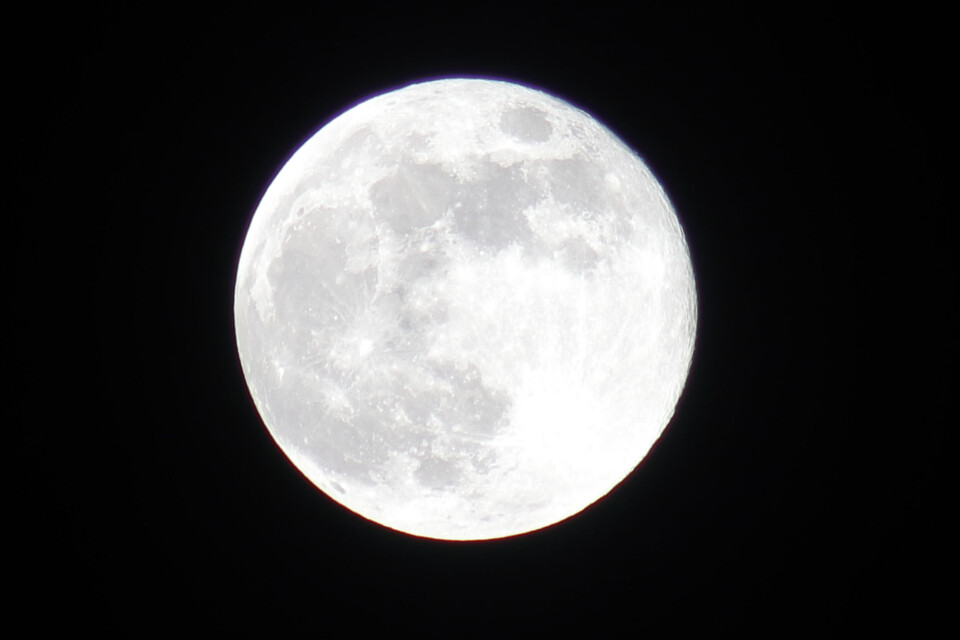-
British ‘Puppet Master’ conman in French jail wins phones back on appeal
Robert Hendy-Freegard was given a six-year sentence after hitting two gendarmes with his car
-
Alleged British hacker in jail in France offers to help with police data breach
Recent attack targeted police files
-
‘Elves crossing’: Normandy village installs fun roadsigns for Christmas
Heuland has also cleared its airspace to ensure safe passage for Santa Claus and his reindeer
Look up: ‘Thunder Moon’ 2022 to be visible across France tonight
Our satellite will appear up to 14% larger and 30% brighter than a typical full moon due to the path of its orbit around Earth

If skies are clear, people across France will be able to see the ‘Thunder Moon’ tonight (July 13) and one of the largest full moons visible since 1948.
The phenomenon is caused by the fact that the Moon’s orbit to the Earth is not a perfect circle, but more of an oval. This will mean that tonight, it will pass at only 356,509 kilometres from the surface of the Earth. This is a full 400km closer than most ‘supermoons’.
This means that the ‘full moon’ will appear much bigger than usual: 14% larger and 30% brighter at its peak.
It will be most visible in France from 22:23 tonight until 04:52 tomorrow morning (July 14).
Is it a ‘supermoon’?
The term ‘supermoon’ is not an official astronomical term and so does not have a set definition.
It was first coined by astrologist Richard Nolle in 1979 and since then has regularly been used in the media to describe certain large moons. So while tonight’s moon may be called a ‘supermoon’, this is not technically a scientific term.
The scientific word for the phenomenon is ‘Perigee Full Moon’ (from ‘peri’ meaning near and ‘geo’ meaning Earth).
This moon tonight may not appear much bigger than those sometimes called ‘supermoons’ or ‘blood moons’ usually seen in autumn and winter, although it will be noticeably bigger and brighter than a typical monthly full moon.
Why is it called a Thunder Moon?
This is the term often used in the UK for this moon. The name comes from the association between this time of year and the likelihood of summer thunderstorms.
It is also sometimes known as the Full Buck Moon, because a buck’s antlers are typically fully grown by this time of year.
Tonight’s night sky event comes after the so-called ‘Strawberry Moon’, which was visible in June. This is sometimes also known as the Rose Moon or Hot Moon, as it appears in the Northern Hemisphere’s summer, and in the same month as the summer solstice (the longest day of the year).
Related articles
Total eclipse of the Moon to be visible from France tonight
Pictured: Monday's lunar eclipse as it appeared in south-west France
Earthshine: Rare lunar event to look out for from France this evening
























